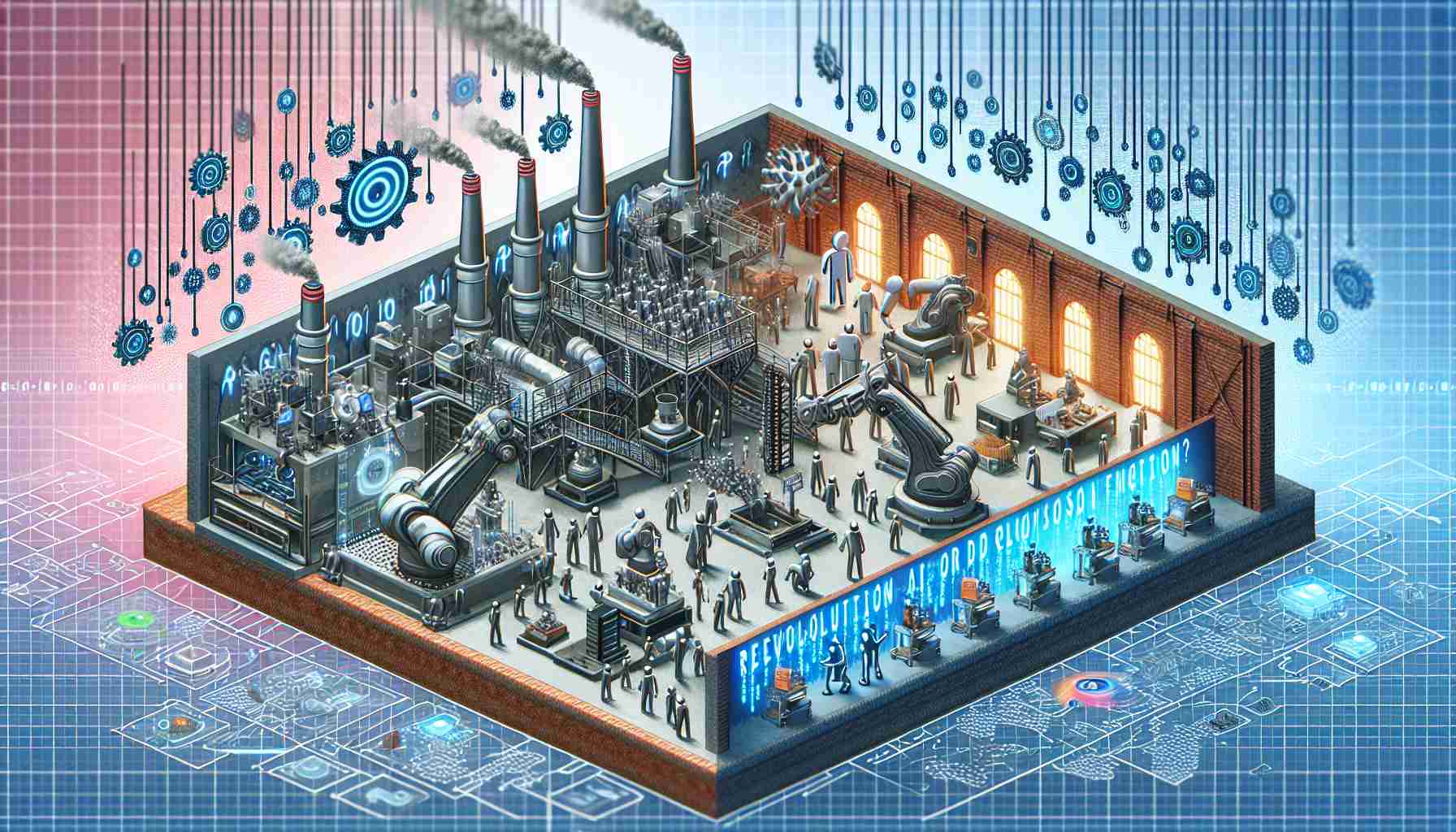The Unseen Battle Over AI’s Economic Future
The integration of Artificial Intelligence (AI) into the business arena has been a slowly brewing revolution, gaining momentum as recent advancements in Generative AI catch attention. Although AI’s business adoption rates are still modest—rising from 3.7% in September 2023 to 5.4% by February 2024—such developments hint at a potential increase to 6.6% by late 2024.
The Divide: Prophets Versus Sceptics
AI inspires fervent reactions, creating distinct camps: the enthusiasts and the skeptics. Enthusiasts perceive AI as a transformative force poised to enhance society, while skeptics argue that AI, despite its nomenclature, lacks true intelligence. Some skeptics insist AI remains merely an advanced statistical model capable of processing vast data but incapable of self-correction—a fundamental trait of true intelligence.
Promises and Pitfalls in AI Adoption
A 2023 Goldman Sachs forecast warned of substantial job displacement from AI, predicting 300 million positions affected. However, as of 2024, AI’s corporate impact has yet to reach the seismic shifts anticipated. Notable cases, such as McDonald’s failed AI-driven order systems, highlight frequent setbacks. Similarly, government automation attempts often falter, revealing AI’s limitations in real-world applications.
Financial Turmoil Reflects AI’s Uncertain Path
In 2024, even tech giants faced turbulence; key AI stock values plummeted by 10% in a single month. This decline reflects growing skepticism of large language models fueling AI giants like ChatGPT.
Recalibrating AI’s Role
While AI is predicted to automate specific tasks, enhancing productivity modestly, its sweeping promises remain elusive. Instead, AI’s true potential lies in augmenting human capabilities, particularly in healthcare and education, although finance and IT sectors may see challenges. Decision-makers must focus on pragmatic AI solutions that support human welfare rather than speculative gains. As AI transforms job landscapes, human innovation and adaptability continue to hold inherent value.
Navigating the Future of AI: Tips, Hacks, and Insights
The evolving landscape of artificial intelligence (AI) has stirred conversations across industries, from business transformation to economic impact. Understanding AI’s potential and limitations can empower individuals and organizations to make informed decisions. Here, we offer practical tips, life hacks, and intriguing facts that illuminate AI’s evolving role in our lives.
Tip 1: Embrace Continuous Learning
AI technologies are constantly evolving. Stay updated with the latest AI trends and tools through online courses, webinars, and expert talks. Websites like Coursersa and Udacity provide resources to enhance your AI knowledge. Continuous learning ensures you remain competitive and informed about AI advancements.
Hack 1: Leverage AI for Efficiency
Integrating AI tools in daily tasks can significantly boost productivity. Use AI-powered applications like Grammarly for writing enhancements or time management tools that leverage AI to optimize schedules. By adopting such tools, you streamline processes and free up time for creative pursuits.
Interesting Fact: AI’s Role in Personalized Healthcare
Did you know AI is pivotal in personalized medicine? AI algorithms analyze patient data to tailor treatments, predict health trends, and even assist in surgery with precision. This capability enhances patient outcomes and optimizes healthcare resources.
Tip 2: Balance Skepticism with Open-Mindedness
While skepticisms exist around AI, it’s important to balance caution with openness. Critically evaluate AI’s promises and challenges, and be open to experimenting with new technologies. Platforms like MIT Technology Review often provide nuanced perspectives on AI, helping you form a well-rounded view.
Hack 2: Utilize AI for Innovative Problem Solving
Organizations can leverage AI for innovative problem-solving across sectors. Encourage cross-disciplinary teams to brainstorm ways AI can address business challenges, improve customer experience, and enhance product offerings. Collaborative environments promote diverse applications of AI.
Interesting Fact: AI’s Impact on Climate Change
AI has a growing role in tackling climate change. From optimizing energy consumption to analyzing environmental data, AI tools are aiding scientists in developing innovative solutions for a sustainable future. These efforts demonstrate AI’s potential beyond traditional business settings.
Tip 3: Harness AI for Creative Industries
Innovative sectors like music and art are exploring AI’s creative potential. Musicians and artists use AI algorithms to generate new sounds or designs, expanding creative boundaries. Embracing AI in creative endeavors opens new possibilities and diversifies output.
Conclusion: The Path Forward with AI
As AI continues to shape various aspects of society and industry, understanding its capabilities and challenges is crucial. By thoughtfully integrating AI tools, keeping abreast of developments, and adopting an open yet critical mindset, individuals and organizations can harness AI to augment—not replace—human ingenuity and adaptability. As we navigate AI’s future, informed decision-making and responsible innovation will be our greatest allies.
















